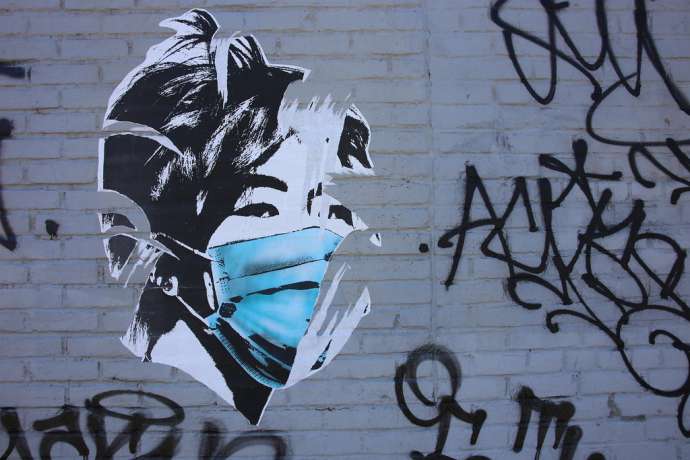STA, 30 May 2020 - After two and a half months, the Covid-19 epidemic will officially end on Sunday, as Slovenia becomes the first country in Europe to do so. Life is gradually returning to normal after schools and kindergartens were closed for two months, public transport suspended, non-essential stores closed and strict social distancing rules put in place.
By Thursday, there had been 1,473 cases of Covid-19 confirmed in Slovenia, the latest available data shows. In the past month, the number of confirmed daily cases has been reduced to a single-digit trickle, while only a handful of people are in hospital care.
But in the first half of March, the situation was much different, with the number of cases growing exponentially. The first case was detected on 4 March and within a week, the number exceeded 100 cases, while only two days later it had already surpassed 200.
An epidemic was declared on 12 March so as to allow the Civil Protection Service to initiate the national epidemic plan. In the following days, the newly appointed government started imposing strict social distancing measures so as to prevent the scenario that had been playing out in Italy at that time.
A month after the first case was detected, more than a thousand cases had been confirmed. The highest daily increase of cases was seen on 26 March, when 61 people tested positive. Data compiled by Covid-19 Sledilnik, an online tracker with multiple data inputs, shows that the epidemic reached its peak in Slovenia in early April.
An epidemiologic anti-bodies survey conducted at the end of April suggested that 66,000 people had been in some sort of contact with the virus.
By Thursday, a total of 108 people died of Covid-19 in Slovenia, 80% of them were elderly nursing home residents. Infections were confirmed in 14 homes, with three homes becoming full blown hotspots, accounting for the majority of casualties.
The communities where these three homes are located reported some of the highest number of deaths: 38 people died in Šmarje pri Jelšah, 20 in Ljutomer and 17 in Metlika.
It is believed that the situation would have been much worse in Slovenia had it not been for strict epidemic measures. Not only did public life grind to a halt, people were even banned from travelling outside their municipality units for a while except for work and emergency.
Public gatherings were banned, as well as movement in public spaces and people could only take walks outside with members of their own household. Facial masks were obligatory in closed spaces, as were protective gloves.
A gradual easing of restrictions started in late April and in early May bars were allowed to serve patrons sitting outside, smaller non-essential stores reopened, as well as hair salons, libraries and churches, all having to comply with strict social distancing rules.
Preschoolers and student of the first three grades returned to kindergartens and schools on 18 May, to a great relief of many parents who had been working from home while caring for their children.
Ninth-grade students and those in the final year of secondary schools returned last week, while the rest of primary school students will return in the coming week. The rest will finish the school year through distant learning.
Most services will have returned back to normal by Monday, when the gathering of up to 200 people will be allowed again. Gradually, border crossing restrictions are being abolished.
With the country expecting a second wave of the epidemic in autumn or winter, some of the social distancing rules remain in place. People need to keep a safety distance of 1.5 metres or wear a face mask where this is not possible.
While life is finding a new normal, the economic and social consequences of the epidemic will be more enduring. Nearly 30,000 people lost their jobs in March and April.
Fortunately, the most recent data from the Employment Service shows this trend has started to reverse. However, a number of companies have said they would have to lay off workers in the coming months as reality hits.
To help the country overcome the crisis, three legislative packages have been passed by the National Assembly, bringing measures valued at some EUR 6 billion.
All our stories on coronavirus and Slovenia are here







